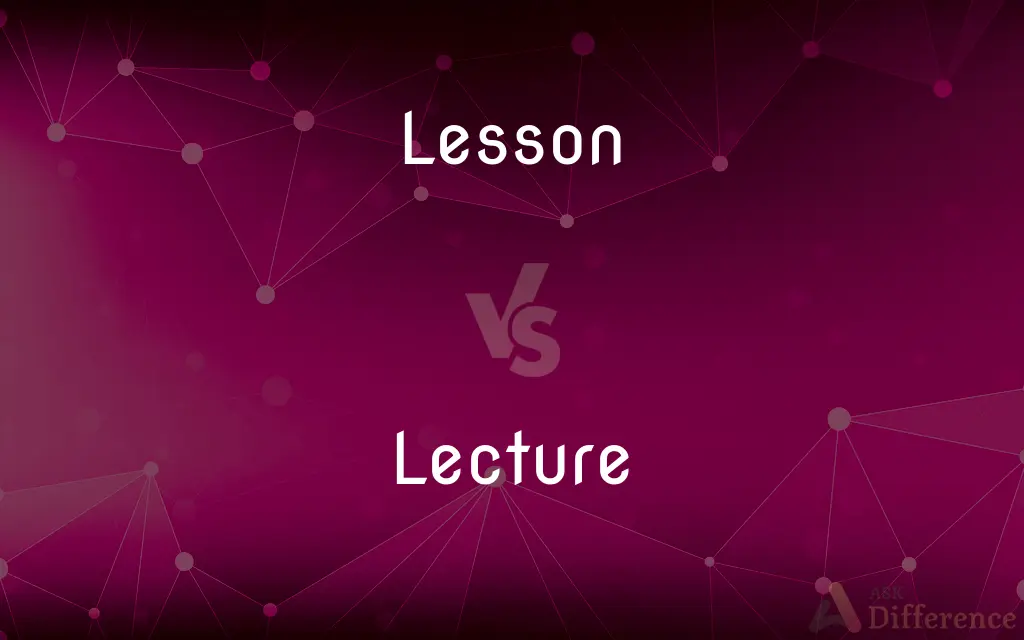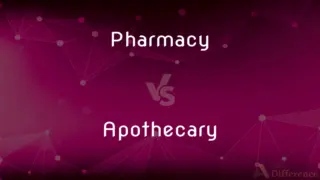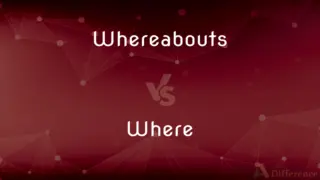Lesson vs. Lecture — What's the Difference?
Edited by Tayyaba Rehman — By Urooj Arif — Updated on March 1, 2024
Lessons involve interactive learning and practice, while lectures are informative talks given to large groups.

Difference Between Lesson and Lecture
Table of Contents
ADVERTISEMENT
Key Differences
A lesson is a period of learning or teaching where there is a two-way interaction between the teacher and students, often involving discussions, questions, and hands-on activities. It is designed to be engaging and can cover any subject or skill. Whereas a lecture is a form of teaching that involves a speaker addressing an audience, primarily delivering information without expecting much, if any, interaction from the listeners. Lectures are common in universities and large classes, focusing on the dissemination of knowledge in a one-way flow from lecturer to students.
Lessons are typically structured to include objectives, introduction, development, practice, and assessment phases to ensure that students not only receive information but also understand and can apply it. On the other hand, lectures might follow a more linear structure, mainly concentrating on the presentation of content, with the understanding and application of knowledge being the responsibility of the students afterward.
The role of the teacher is more interactive and dynamic, adjusting teaching methods based on student feedback and understanding. Conversely, in lectures, the lecturer's role is primarily to present, with less emphasis on immediate feedback or adaptation to student responses during the lecture itself.
The setting for lessons can vary widely, from classrooms to online platforms, and is designed to support interaction, such as small groups or individual tasks. Lectures, however, often take place in larger settings like lecture halls or online webinars, where the focus is on the lecturer and the presentation of material.
Assessment in lessons is often immediate and formative, with teachers using various methods to gauge understanding and provide feedback. In contrast, assessment following lectures may take the form of exams or assignments that test the students' understanding of the lecture content at a later time.
ADVERTISEMENT
Comparison Chart
Interaction
High, with two-way communication between teacher and students.
Low, primarily one-way communication from lecturer to audience.
Structure
Includes objectives, practice, and assessment.
Linear, focusing on content presentation.
Teacher's Role
Interactive and adaptive.
Primarily presenting information.
Setting
Varied, supports interaction (classrooms, online).
Larger settings (lecture halls, webinars).
Assessment
Immediate and formative.
Later, through exams or assignments.
Compare with Definitions
Lesson
Opportunity for practice and feedback.
Each lesson includes a quiz to test understanding.
Lecture
An educational talk to an audience.
The professor's lecture on Roman history was fascinating.
Lesson
A period of instruction; a teaching session.
Today's lesson focuses on fractions.
Lecture
Presentation of information without expected interaction.
The lecture was recorded for online students.
Lesson
Structured educational activity.
The teacher prepared a lesson plan for the science class.
Lecture
A method for delivering knowledge in universities.
Lectures form the backbone of college teaching.
Lesson
Interactive learning experience.
The lesson involved a hands-on experiment.
Lecture
A speaker addressing a large group.
The guest lecturer spoke about environmental conservation.
Lesson
Tailored to individual or small group needs.
The music lesson was adapted to the student's progress.
Lecture
Emphasis on information dissemination.
Lecture notes were distributed to supplement the talk.
Lesson
A lesson or class is a structured period of time where learning is intended to occur. It involves one or more students (also called pupils or learners in some circumstances) being taught by a teacher or instructor.
Lecture
A lecture (from the French lecture, meaning reading) is an oral presentation intended to present information or teach people about a particular subject, for example by a university or college teacher. Lectures are used to convey critical information, history, background, theories, and equations.
Lesson
Something to be learned
Lessons from observing nature.
Lecture
An exposition of a given subject delivered before an audience or class, as for the purpose of instruction.
Lesson
A period of instruction; a class.
Lecture
An earnest admonition or reproof; a reprimand.
Lesson
An assignment or exercise in which something is to be learned.
Lecture
To deliver a lecture or series of lectures.
Lesson
The act or an instance of instructing; teaching.
Lecture
To deliver a lecture to (a class or audience).
Lesson
An experience, example, or observation that imparts new knowledge or understanding
The conversation was a lesson in tact.
Lecture
To admonish or reprove earnestly, often at length
Always lecturing me about my manners.
Lesson
The knowledge or wisdom so acquired. Missing the opening act taught me a lesson about being late.
Lecture
A discourse on any subject; especially, a formal or methodical discourse, intended for instruction; sometimes, a familiar discourse, in contrast with a sermon.
Lesson
A severe lecture; reproof; rebuke; warning.
She would give her a lesson for walking so late.
Lecture
Teaching by giving a discourse on some subject (typically to a class)
Lesson
Punishment intended as a warning to others;
They decided to make an example of him
Lesson
The significance of a story or event;
The moral of the story is to love thy neighbor
Lesson
A task assigned for individual study;
He did the lesson for today
Common Curiosities
What settings are common for lessons and lectures?
Lessons occur in various settings like classrooms or online platforms, while lectures are typically in larger venues or through webinars.
What is a lesson?
A lesson is an interactive period of learning, where a teacher engages with students to impart knowledge and skills.
What is a lecture?
A lecture is an informative talk given to a large audience, focusing on the one-way transmission of information.
Is one method better than the other?
The effectiveness depends on the objectives, audience size, and subject matter. Both have their place in education.
Can lectures be part of lessons?
Yes, lectures can be a component of lessons, especially in introducing new concepts before interactive activities.
How can lectures be made more engaging?
Incorporating multimedia, encouraging questions, and using interactive tools can make lectures more engaging.
How do lessons and lectures differ in interaction?
Lessons involve high interaction with immediate feedback, while lectures have minimal interaction.
Do lessons and lectures require different skills from educators?
Yes, lessons often require adaptability and interactive skills, while lectures demand strong presentation and organization skills.
How do teachers assess understanding in lessons vs. lectures?
Assessment in lessons is immediate and formative, while in lectures, it often occurs later through exams or assignments.
Can online platforms support both lessons and lectures?
Yes, online platforms can accommodate both methods, offering tools for interactive learning and large-scale presentations.
Share Your Discovery

Previous Comparison
Pharmacy vs. Apothecary
Next Comparison
Whereabouts vs. WhereAuthor Spotlight
Written by
Urooj ArifUrooj is a skilled content writer at Ask Difference, known for her exceptional ability to simplify complex topics into engaging and informative content. With a passion for research and a flair for clear, concise writing, she consistently delivers articles that resonate with our diverse audience.
Edited by
Tayyaba RehmanTayyaba Rehman is a distinguished writer, currently serving as a primary contributor to askdifference.com. As a researcher in semantics and etymology, Tayyaba's passion for the complexity of languages and their distinctions has found a perfect home on the platform. Tayyaba delves into the intricacies of language, distinguishing between commonly confused words and phrases, thereby providing clarity for readers worldwide.













































